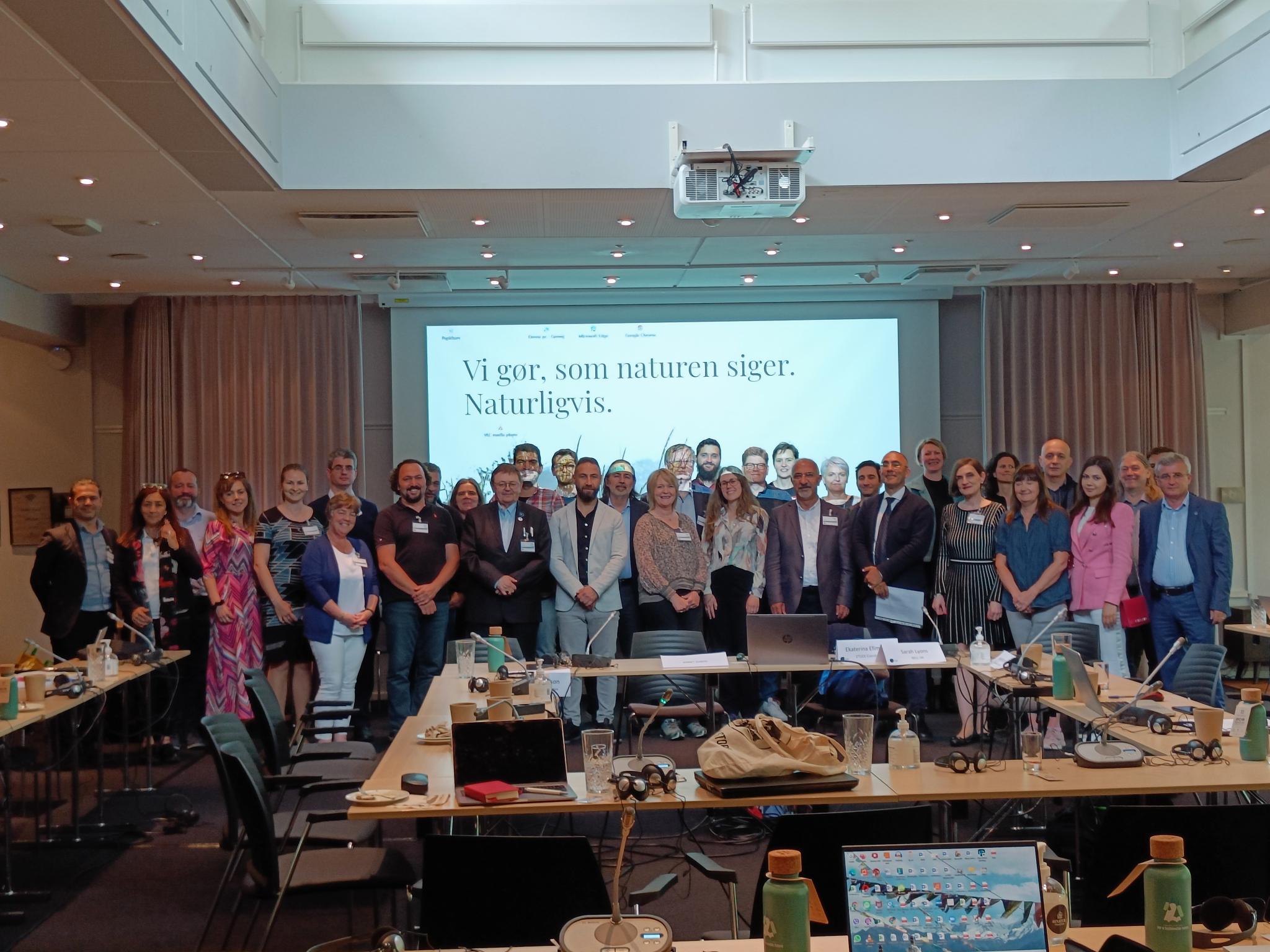Training workshop in Copenhagen: Education Trade Unions and environmental sustainability
Published:
What are the barriers and enablers of integrating environmental sustainability in the educational curricula? What impact does climate change have on working conditions in the education sector? How to collaborate with trade unions across sectors to address this impact? These and other important questions regarding the introduction and promotion of the topic of environmental sustainability in the national education curricula and collective bargaining were discussed by ETUCE member organisations during the training workshop ‘Education Trade Unions addressing sustainable environmental development’, held on 2 June 2022 in Copenhagen.
More than 40 experts and representatives from the member organisations gathered during the training workshop to discuss the implementation of education for environmental sustainability in different national contexts, the impact of climate change on the education sector, including on working conditions and the crucial role of trade unions in this context. This is a second workshop (first took place on the 29 April 2022 in Rome) organised in the framework of the ETUCE project “Education for Social Change: The role of education trade unions in addressing sustainable environmental development”. This project aims at building the capacity of education trade unions in preparing their affiliates to address environmental questions and climate emergency for sustainable development in education and training through social dialogue and collective bargaining. In fact, the one-day training workshop continued the discussions started at the project Kick-Off Conference in April 2021 and the first workshop in Rome on 29 April. It gave ETUCE member organisations opportunity to discuss national findings of an ETUCE survey amongst its member organisations on the challenges of education and education personnel in regard to the climate emergency and sustainable development, and on the role of education trade unions in addressing these challenges.
Representatives of DLF, BUPL and GL, ETUCE member organisations in Denmark opened the workshop giving a closer insight on the situation in the country, in particular presenting good practices of green transition from the early childhood education and in upper secondary education, as well as explaining how the Danish education trade unions collaborate with policymakers and across sectors to ensure the integration of environmental sustainability in all aspects of the education system.
The training workshop offered further space for education trade unions to share good practices on supporting sustainable development in education. During the first working group discussion, participants highlighted the lack of strategies and planning at government level regarding environmental sustainability in education, lack of support structures and transparency in terms of how pollution is measured and how to reduceCO2 in schools, as well as poor social dialogue on green transition. During the discussion on the role of education trade unions in addressing the topic, participants pointed out the need to raise the awareness not only among trade union members but also in the wider society, to create common goals for unions, and to collaborate across sectors with other unions and people with the interest and expertise in the area.
The project’s Closing Conference will take place on the 27-28 October 2022 in Brussels.
To learn more about the project “Education for Social Change: The role of Education Trade Unions in addressing sustainable environmental development”, view the project’s webpage.
